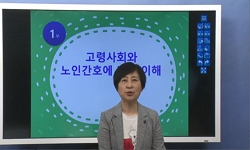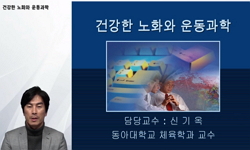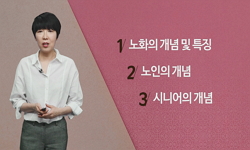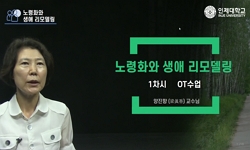Objective: Electroconvulsive therapy (ECT) has proven to be effective in treatment-resistant depression (TRD). In recent reports,70% to 90% of patients with TRD responded to ECT. However, post-ECT relapse is a significant problem. There are no studies...
http://chineseinput.net/에서 pinyin(병음)방식으로 중국어를 변환할 수 있습니다.
변환된 중국어를 복사하여 사용하시면 됩니다.
- 中文 을 입력하시려면 zhongwen을 입력하시고 space를누르시면됩니다.
- 北京 을 입력하시려면 beijing을 입력하시고 space를 누르시면 됩니다.



Follow-up Study on Electroconvulsive Therapy in Treatment-resistant Depressed Patients after Remission: A Chart Review
한글로보기https://www.riss.kr/link?id=A101597203
-
저자
Yuki Tokutsu (University of Occupational and Environmental Health) ; Wakako Umene-Nakano (University of Occupational and Environmental Health) ; Takahiro Shinkai (University of Occupational and Environmental Health) ; Reiji Yoshimura (University of Occupational and Environmental Health) ; Tatsuya Okamoto (University of Occupational and Environmental Health) ; Asuka Katsuki (University of Occupational and Environmental Health) ; Hikaru Hori (University of Occupational and Environmental Health) ; Atsuko Ikenouchi-Sugita (University of Occupational and Environmental Health) ; Kenji Hayashi (University of Occupational and Environmental Health) ; Kiyokazu Atake (University of Occupational and Environmental Health) ; Jun Nakamura (University of Occupational and Environmental Health)
- 발행기관
- 학술지명
- 권호사항
-
발행연도
2013
-
작성언어
English
- 주제어
-
등재정보
KCI등재후보,SCIE,SCOPUS
-
자료형태
학술저널
-
수록면
34-38(5쪽)
-
KCI 피인용횟수
7
- 제공처
-
0
상세조회 -
0
다운로드
부가정보
다국어 초록 (Multilingual Abstract)
Objective: Electroconvulsive therapy (ECT) has proven to be effective in treatment-resistant depression (TRD). In recent reports,70% to 90% of patients with TRD responded to ECT. However, post-ECT relapse is a significant problem. There are no studies investigating risk factors associated with reintroducing ECT in depressive patients after remission previously achieved with former ECT. The aim of the present study is to examine such risk factors using a sample of TRD patients.
Methods: We conducted a chart review to examine patient outcomes and adverse events over short- and long-term periods.
Forty-two patients met the criteria for major depressive disorder.
Results: The response rate was 85.7% (36/42). There were no significant differences in the baseline characteristics of patients exhibiting remission, response or non-response. The rate of adverse events was 21.4% (9/42). Among 34 patients who were available for follow-up, 18 patients relapsed (relapse rate, 52.9%), and 6 patients were reintroduced to ECT. The patients’ age and age of onset were significantly higher in the re-ECT group than non re-ECT group.
Conclusion: Our results suggest that older age and older age of onset might be considered for requirement of re-ECT after remission previously achieved with former ECT.
참고문헌 (Reference)
1 Thase ME, "When at first you don't succeed: sequential strategies for antidepressant nonresponders" 58 (58): 23-29, 1997
2 Trivedi MH, "Treatment-resistant depression: new therapies on the horizon" 15 : 59-70, 2003
3 Kennedy SH, "Treatment resistant depression-- advances in somatic therapies" 19 : 279-287, 2007
4 O'Connor MK, "The influence of age on the response of major depression to electroconvulsive therapy: a C.O.R.E. Report" 9 : 382-390, 2001
5 Tokutsu Y, "The case of a depressed man who exhibited hyperprolactinemia and galactopoiesis after electroconvulsive therapy" 28 : 56-, 2012
6 Tominaga K, "Symptom predictors of response to electroconvulsive therapy in older patients with treatment-resistant depression" 4 : 515-519, 2011
7 Prudic J, "Resistance to antidepressant medications and short-term clinical response to ECT" 153 : 985-992, 1996
8 Tew JD Jr, "Relapse during continuation pharmacotherapy after acute response to ECT: a comparison of usual care versus protocolized treatment" 19 : 1-4, 2007
9 Prudic J, "Medication resistance and clinical response to electroconvulsive therapy" 31 : 287-296, 1990
10 Russell JC, "Long-term maintenance ECT: a retrospective review of efficacy and cognitive outcome" 19 : 4-9, 2003
1 Thase ME, "When at first you don't succeed: sequential strategies for antidepressant nonresponders" 58 (58): 23-29, 1997
2 Trivedi MH, "Treatment-resistant depression: new therapies on the horizon" 15 : 59-70, 2003
3 Kennedy SH, "Treatment resistant depression-- advances in somatic therapies" 19 : 279-287, 2007
4 O'Connor MK, "The influence of age on the response of major depression to electroconvulsive therapy: a C.O.R.E. Report" 9 : 382-390, 2001
5 Tokutsu Y, "The case of a depressed man who exhibited hyperprolactinemia and galactopoiesis after electroconvulsive therapy" 28 : 56-, 2012
6 Tominaga K, "Symptom predictors of response to electroconvulsive therapy in older patients with treatment-resistant depression" 4 : 515-519, 2011
7 Prudic J, "Resistance to antidepressant medications and short-term clinical response to ECT" 153 : 985-992, 1996
8 Tew JD Jr, "Relapse during continuation pharmacotherapy after acute response to ECT: a comparison of usual care versus protocolized treatment" 19 : 1-4, 2007
9 Prudic J, "Medication resistance and clinical response to electroconvulsive therapy" 31 : 287-296, 1990
10 Russell JC, "Long-term maintenance ECT: a retrospective review of efficacy and cognitive outcome" 19 : 4-9, 2003
11 McDonald WM, "Is ECT cost-effective? A critique of the National Institute of Health and Clinical Excellence's report on the economic analysis of ECT" 22 : 25-29, 2006
12 Kikuchi A, "Identification of predictors of post-ictal delirium after electroconvulsive therapy" 63 : 180-185, 2009
13 Devanand DP, "Electroconvulsive therapy in the treatment-resistant patient" 14 : 905-923, 1991
14 Husain SS, "Electroconvulsive therapy in depressive illness that has not responded to drug treatment" 83 : 121-126, 2004
15 Gupta S, "Efficacy of maintenance electroconvulsive therapy in recurrent depression: a naturalistic study" 24 : 191-194, 2008
16 Gagné GG Jr, "Efficacy of continuation ECT and antidepressant drugs compared to long-term antidepressants alone in depressed patients" 157 : 1960-1965, 2000
17 Sackeim HA, "Effects of stimulus intensity and electrode placement on the efficacy and cognitive effects of electroconvulsive therapy" 328 : 839-846, 1993
18 Prudic J, "Effectiveness of electroconvulsive therapy in community settings" 55 : 301-312, 2004
19 Petrides G, "ECT remission rates in psychotic versus nonpsychotic depressed patients: a report from CORE" 17 : 244-253, 2001
20 Fink M, "Convulsive therapy: a review of the first 55 years" 63 : 1-15, 2001
21 Aronson TA, "Continuation therapy after ect for delusional depression: a naturalistic study of prophylactic treatments and relapse" 3 : 251-259, 1987
22 Sackeim HA, "Continuation pharmacotherapy in the prevention of relapse following electroconvulsive therapy: a randomized controlled trial" 285 : 1299-1307, 2001
23 Knapp RG, "Continuation electroconvulsive therapy vs pharmacotherapy for relapse prevention in major depression: a multisite study from the Consortium for Research in Electroconvulsive Therapy (CORE)" 63 : 1337-1344, 2006
24 Frank E, "Conceptualization and rationale for consensus definitions of terms in major depressive disorder. Remission, recovery, relapse, and recurrence" 48 : 851-855, 1991
25 Bailine SH, "Comparison of bifrontal and bitemporal ECT for major depression" 157 : 121-123, 2000
26 Kellner CH, "Combining ECT and antidepressants: time to reassess" 14 : 65-67, 1998
27 Greenhalgh J, "Clinical and cost-effectiveness of electroconvulsive therapy for depressive illness, schizophrenia, catatonia and mania: systematic reviews and economic modelling studies" 9 : 1-156, 2005
28 Abrams R, "Antidepressant effects of right versus left unilateral ECT and the lateralization theory of ECT action" 146 : 1190-1192, 1989
29 Watts BV, "An examination of mortality and other adverse events related to electroconvulsive therapy using a national adverse event report system" 27 : 105-108, 2011
30 Gardner BK, "A review of the cognitive effects of electroconvulsive therapy in older adults" 24 : 68-80, 2008
31 Hamilton M, "A rating scale for depression" 23 : 56-62, 1960
32 Sackeim HA, "A prospective, randomized, double-blind comparison of bilateral and right unilateral electroconvulsive therapy at different stimulus intensities" 57 : 425-434, 2000
동일학술지(권/호) 다른 논문
-
Prolonged Delirium Secondary to Hypoxic-ischemic Encephalopathy Following Cardiac Arrest
- 대한정신약물학회
- Jegan Yogaratnam
- 2013
- KCI등재후보,SCIE,SCOPUS
-
- 대한정신약물학회
- Huafang Li
- 2013
- KCI등재후보,SCIE,SCOPUS
-
- 대한정신약물학회
- Ganesan Venkatasubramanian
- 2013
- KCI등재후보,SCIE,SCOPUS
-
Factor Structure of the Targeted Inventory on Problems in Schizophrenia
- 대한정신약물학회
- Shoji Tanaka
- 2013
- KCI등재후보,SCIE,SCOPUS
분석정보
인용정보 인용지수 설명보기
학술지 이력
| 연월일 | 이력구분 | 이력상세 | 등재구분 |
|---|---|---|---|
| 2023 | 평가예정 | 해외DB학술지평가 신청대상 (해외등재 학술지 평가) | |
| 2022-02-15 | 학회명변경 | 영문명 : 미등록 -> Korean College of Neuropsychopharmacology |  |
| 2020-01-01 | 평가 | 등재학술지 유지 (해외등재 학술지 평가) |  |
| 2013-10-01 | 평가 | 등재학술지 선정 (기타) |  |
| 2012-01-01 | 평가 | 등재후보학술지 유지 (기타) |  |
| 2011-01-01 | 평가 | 등재후보 1차 PASS (등재후보1차) |  |
| 2010-01-01 | 평가 | 등재후보 1차 FAIL (등재후보2차) |  |
| 2009-01-01 | 평가 | 등재후보 1차 PASS (등재후보1차) |  |
| 2007-01-01 | 평가 | SCOPUS 등재 (신규평가) |  |
학술지 인용정보
| 기준연도 | WOS-KCI 통합IF(2년) | KCIF(2년) | KCIF(3년) |
|---|---|---|---|
| 2016 | 1.61 | 0.26 | 1.28 |
| KCIF(4년) | KCIF(5년) | 중심성지수(3년) | 즉시성지수 |
| 1.09 | 0.96 | 0.376 | 0.11 |




 KCI
KCI






